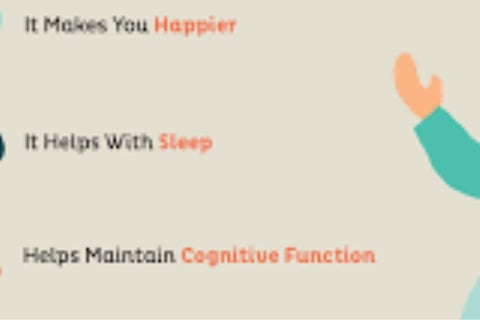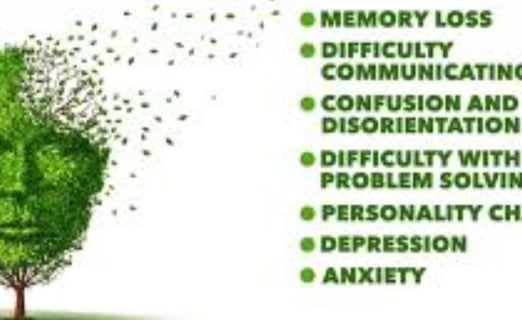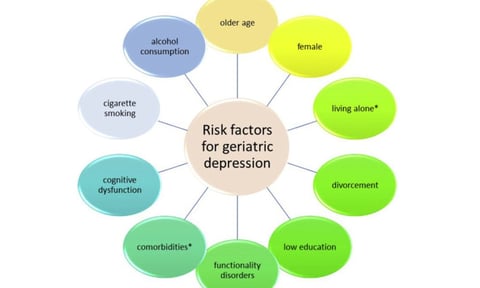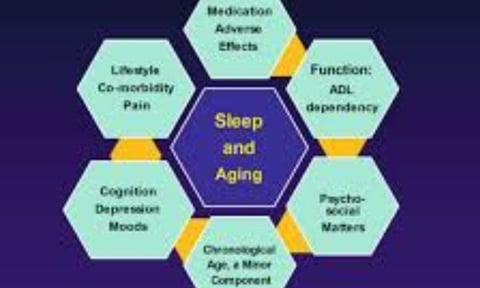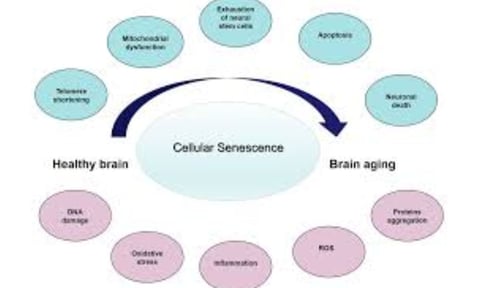
Aging, Dementia, and Anxiety : fasting and quran
Explore how incorporating faith practices such as dhikr and reading the Qur'an can assist in managing aging, dementia, anxiety, depression, Alzheimer's, and Parkinson's. Discover the profound benefits of these spiritual practices.
DEMETIA
Dr Hassan Al Warraqi
6/5/2024
Aging, Dementia, and Anxiety : fasting and quran
It is an inevitable fact in the natural life cycle of humans and living organisms in general
The aging process that leads to deterioration in the functions of organs and systems, making a person more susceptible to diseases and health problems
Causes of death due to old age are chronic diseases such as cardiovascular diseases, cancers, respiratory diseases, and digestive system diseases, in addition to a weak immune system.
Intermittent fasting research has shown some potential health benefits.
Some studies indicate that intermittent fasting may contribute to reducing the risk of some chronic diseases and delaying the aging process
As for Islamic fasting, it includes a person abstaining from eating and drinking from dawn until sunset
Fasting can regulate blood sugar levels and reduce inflammation in the body, and may help improve the functions of organs such as the digestive system, heart, and brain.
Although aging is not necessarily a direct cause of death, it does make the body more vulnerable to developing a variety of health conditions that may contribute to an increased risk of death.
Anxiety, depression and psychological stress
These are common feelings that people can encounter in their daily lives
Anxiety: Anxiety can be a normal reaction in the face of challenges or stressful situations, but when it becomes excessive and persistent, it can affect daily life and mental and physical health.
Depression: Depression is characterized by persistent low mood, loss of interest in daily activities, feeling tired and anxious, and feelings of hopelessness and helplessness.
Psychological stress: Psychological stress can be caused by a variety of factors including daily stressors at work, relationships, or personal responsibilities.
Excessive stress may lead to sleep problems, appetite changes, and increased emotional stress
Common symptoms of dementia:
Memory loss: especially short-term memory.
Difficulty thinking and concentrating:
Difficulty solving problems and making decisions:
Language loss:
Changes in behavior and mood:
Causes of dementia
Vascular dementia: by damage to blood vessels in the brain.
Atrophic dementia: by shrinkage of the brain and damage to its cells.
Aggregate dementia: by the buildup of abnormal proteins in the brain
Alzheimer's disease: is the most common cause of dementia, 60-80% of all cases.
It is a degenerative disease that affects brain cells and causes memory loss, difficulty thinking, and changes in behavior.
Stroke: cause brain damage that can lead to dementia. when blood flow to part of the brain is cut off
Parkinson's disease: is a neurological disorder that affects movement.
It can also cause problems with thinking and memory.
Other causes: many other causes of dementia, including head injuries, infections, and some medications.
There is no cure for dementia, but there are treatments that can help improve symptoms and quality of life
Medications: There are some medications that can help improve the symptoms of Alzheimer's disease and vascular dementia.
Therapy: Therapy can help address difficult feelings and behaviors.
Care: Providing supportive care for the person with dementia, such as assistance with daily activities.
Lifestyle changes: Certain lifestyle changes, such as exercising regularly and eating a healthy diet, can help improve symptoms and prevent them from getting worse.
Risk factors for dementia
Age: The older a person gets, the greater their risk of developing dementia.
Family history: Having family members with dementia increases the risk of developing it.
Genetics: Certain genes increase the risk of developing certain types of dementia.
Medical conditions: Some medical conditions, such as diabetes and high blood pressure, increase the risk of dementia.
Lifestyle: Smoking, obesity, lack of physical activity, and an unhealthy diet all increase the risk of dementia
Diagnosis of dementia
There is no single test that can diagnose dementia
Medical history, physical examination, and memory and thinking tests
Imaging tests, such as MRI or CT scan
Memory strengthening exercises
It can be achieved through a variety of exercises and daily activities
Exercise: Regular exercise is beneficial for relieving anxiety and depression and improving memory
Physical activity enhances blood flow to the brain, which enhances its functions
Meditation and relaxation: Meditation and relaxation techniques such as deep breathing and quiet meditation can help calm the mind and body and reduce stress and anxiety
Mental activities: such as solving puzzles and mind games and learning something new, such as languages or new skills, can stimulate the mind and enhance memory.
Healthy lifestyle: eat a balanced diet, get enough sleep, and avoid excessive intake of stimulants such as caffeine and sugar.
Meeting up with friends and family: Maintaining strong social connections can help relieve stress and promote feelings of happiness and well-being
Enjoyable hobbies: Spend time doing activities you enjoy, such as drawing, writing, or listening to music
The Holy Qur’an plays an important role in strengthening memory and relieving anxiety, depression, and psychological stress for many people
Meditation and serenity: It can help calm the mind and spirit, reducing levels of anxiety and stress
Strengthening memory: Repeating reading the Holy Qur’an can act as a memory exercise, as it stimulates the mind to remember verses, meanings, and details.
Psychological comfort and faith: Reading the Holy Qur’an, thinking about its meanings, and listening to its recitation can help strengthen faith and increase psychological comfort.
Positive effect on mood: can be toleratedQuranic verses are inspiring and reassuring messages, which contribute to raising mood and reducing depression
Moral guidance: The Holy Qur’an’s teachings about patience, tolerance, and contentment with God Almighty’s will help to accept challenges and relieve anxiety and psychological pressure.
Strengthening memory and alleviating anxiety, depression, and psychological stress. The role of the Holy Qur’an and fasting
The Holy Qur’an and fasting can play an important role in strengthening memory and relieving anxiety, depression, and psychological stress
Meditation and Spiritual Thinking: Reading the Holy Quran and fasting can help meditate and meditate on spiritual values and teachings, which enhances inner tranquility and reduces levels of anxiety and depression.
Mental Discipline and Concentration: Muslims are required to abstain from food and drink from dawn to dusk, which requires high mental discipline and concentration. This type of discipline can enhance focus and attention, which positively affects memory
Improving the quality of sleep: Fasting can have a positive effect on the quality of sleep, as the body gets used to new patterns of sleep and some may feel better in sleep, which is an important factor for the health of the mind and body.
Spiritual and faith guidance: Fasting and regular recitation of the Holy Quran may enhance spirituality and faith, which contributes to reducing anxiety and depression through feeling a deep connection to and dependence on God.
Participation in charitable works and compassion: In Islam, it is encouraged to practice charitable works and compassion for others, which can enhance psychological satisfaction and relieve psychological stress.
Keywords:
Aging, dementia, anxiety, depression, Alzheimer's, Parkinson's, faith, dhikr, alcohol, drugs, psychological pressure, the Qur'an, fasting, optimism, stroke, salat(prayer ,
Aging, Dementia, and Anxiety
Key Insights on the Role of Religion and Spirituality in Addressing Aging, Dementia, and Anxiety
How to manage aging, dementia, and anxiety through religious practices in Islam:
Prayer and Worship
Supplication (Dua):
Supplication is viewed as a means to calm the soul, reduce stress, and alleviate anxiety. In Islam, it is considered a powerful tool for communicating with God and seeking His assistance.
Acts of worship, such as prayer (Salah) and remembrance of God (Dhikr), promote relaxation, strengthen faith, and reduce feelings of loneliness or anxiety.
Spiritual Meditation:
Reflecting on Quranic verses or Hadiths (sayings of the Prophet Muhammad) can calm the mind and redirect thoughts away from persistent anxiety.
Charity and Community Engagement
Engaging in charitable acts and participating in communal religious activities can positively impact mental health and reduce loneliness, especially in later stages of life.
Reliance on Religious Wisdom
Studying religious texts, such as the Quran and Hadiths, can provide guidance to help individuals cope with psychological challenges like anxiety and dementia.
Balancing Rest and Spiritual Challenge
Religious practices encourage a balance between spiritual efforts and physical rest, helping to mitigate the effects of aging and dementia.
Religious Support from Family or Community
Spiritual support from family or religious communities plays a critical role in managing dementia and anxiety by offering a strong sense of emotional solidarity.
Inner Peace and Faith
Belief in divine wisdom behind life’s trials helps individuals accept age-related changes, such as dementia and anxiety.
Growing Importance of Research
There is increasing literature linking religion/spirituality to health outcomes.
Need for Further Research:
Addressing study quality, validating measurement tools, testing spiritual interventions, and developing culturally sensitive spiritual care frameworks.
Dependence of Dementia Patients on Others
Due to cognitive decline, dementia patients often rely on others for spiritual identity and well-being.
Lack of Spiritual Care
Spiritual care is minimally addressed in clinical dementia guidelines, with limited religious/spiritual support in end-of-life care.
Defining Religion and Spirituality
Religion: Commitment to institutional practices.
Spirituality: Individual beliefs and values outside institutions.
These terms are often used interchangeably in research due to their overlap.
Perceptions of Dementia
Traditional healers historically viewed dementia as a natural part of aging rather than a distinct medical condition.
Reasons for Seeking Help: Cognitive symptoms, beliefs in witchcraft, or minor health issues. Healers used prayers, herbal remedies, and spiritual diagnoses.
Four Causes of Illness Identified by Healers: Ordinary diseases, witchcraft, demonic possession, and curses.
Cultural Awareness and Local Beliefs
Cultural perceptions of dementia and illness vary widely. Traditional healers and faith-based practices remain vital in many communities. Understanding these beliefs is essential for providing culturally competent dementia care.
Religion and Spirituality as Sources of Support
Religion and spirituality offer significant comfort and strength in facing aging, dementia, and anxiety.
Call to Action:
More research is needed to understand the spiritual needs of dementia patients and develop inclusive faith communities.
Managing Aging, Dementia, and Anxiety Through the Quran
The Quran can enhance mental and physical health, alleviate anxiety, and provide spiritual comfort for those with dementia or age-related cognitive changes:
Inner Peace and Tranquility:
Regular recitation of Quranic verses (e.g., Surah Al-Fatiha, Al-Baqarah, Al-Ikhlas) promotes calmness.
Example: "Those who believe and whose hearts find peace in the remembrance of Allah. Surely, it is in the remembrance of Allah that hearts find peace" (Quran 13:28).
Faith and Patience:
The Quran strengthens faith in divine decree, encouraging patience amid age-related challenges.
Example: "We will certainly test you with fear, hunger, loss of wealth, lives, and crops. But give good news to those who endure patiently" (Quran 2:155-157).
Spiritual Reliance on God:
Supplications and verses emphasizing reliance on God ease anxiety.
Example: "When you are free, strive ˹in devotion˺, and turn to your Lord wholeheartedly" (Quran 94:7-8).
Social Interaction and Compassion:
The Quran emphasizes caring for parents and community bonds.
Example: "Your Lord has commanded that you worship none but Him, and show kindness to parents... Do not say ‘Uff!’ to them or chide them, but speak to them respectfully" (Quran 17:23).
Spiritual and Physical Healing:
Reciting and reflecting on the Quran complements medical treatment, reducing anxiety and depression.
Fasting as a Tool to Combat Anxiety and Stress
Fasting, particularly in its spiritual and physical context, plays a significant role in managing anxiety, especially in the elderly:
1. Biological Benefits:
Improved Brain Health:
Intermittent fasting stimulates autophagy (cellular cleanup), supporting brain health and reducing risks of dementia and depression.
Increased BDNF: Fasting boosts brain-derived neurotrophic factor (BDNF), enhancing neural plasticity and mood.
Regulated Cortisol: Fasting stabilizes stress hormone levels.
Blood Sugar Stability: Reduces mood swings linked to blood sugar fluctuations.
2. Psychological and Spiritual Benefits:
Self-Discipline: Fasting cultivates patience and control, countering feelings of helplessness.
Meditation and Belonging: Spiritual focus during fasting (e.g., Ramadan) reduces stress and fosters community bonds.
3. Benefits for the Elderly:
Reduced Chronic Inflammation: Lowers markers like CRP and IL-6.
Improved Sleep: Aligns circadian rhythms.
Daily Routine: Provides stability and purpose.
4. Precautions for the Elderly:
Consult a doctor before fasting, especially for those with chronic conditions.
Prioritize nutrient-rich meals and avoid caffeine/sugar.
Monitor for dizziness, confusion, or fatigue.
5. Ramadan and Voluntary Fasting:
Combines spiritual reflection, communal meals, and charity to reduce loneliness and stress.
Conclusion
Fasting, when practiced healthily and thoughtfully, is a powerful tool to manage anxiety and stress in aging individuals by enhancing physical health, spirituality, and purpose. It should be tailored to individual health conditions and combined with light exercise and meditation.
Cultural sensitivity, inclusive faith communities, and further research into spiritual care are essential for holistic dementia support.
FAQs on Religion, Spirituality, and Dementia
1. Why are religious and spiritual practices important for individuals facing aging, dementia, and anxiety?
Religious and spiritual practices can play a vital role in providing psychological comfort and reducing stress and anxiety for individuals navigating the challenges of aging and dementia. These practices include:
Supplication (Dua) and worship, which soothe the soul and strengthen faith.
Spiritual meditation, which helps clear the mind and redirect thoughts positively.
Charity and community engagement, which reduce feelings of loneliness and isolation.
Reliance on religious wisdom and balancing rest with spiritual challenges as coping tools.
Spiritual support from family and religious communities, fostering belonging and security.
Faith in divine wisdom, aiding acceptance of age- and dementia-related changes.
2. How are religion and spirituality measured in people with dementia, and what findings exist?
Religion and spirituality in dementia patients are assessed using adapted tools, including questionnaires on:
The centrality of religion/spirituality in their lives.
Access to religious/spiritual resources (e.g., community belonging, personal practices).
Use of religious/spiritual coping strategies.
Levels of spiritual well-being (inner peace and life meaning).
Key findings:
Positive links between religion/spirituality and cognitive function.
Negative links between religion/spirituality and depression/behavioral issues.
Limitation: Few validated tools specifically designed for dementia patients.
3. What aspects of religion/spirituality are studied in dementia research?
Studies focus on:
Centrality of religion/spirituality (their importance in life).
Religious/spiritual resources (community ties, practices, beliefs).
Religious/spiritual coping (managing stress through faith).
Spiritual well-being (inner peace and life meaning).
Most tools used are generic, not dementia-specific.
4. What challenges exist in measuring religion/spirituality in dementia patients?
Key challenges include:
Cognitive decline, complicating reliable participation in surveys/interviews.
Lack of validated tools tailored for dementia patients.
Subjectivity: Religion/spirituality are deeply personal, making standardized definitions difficult.
5. What are the spiritual needs of dementia patients, and how can they be addressed?
Spiritual needs include:
A sense of meaning and purpose.
Connection to beliefs, values, and traditions.
Support for maintaining practices (e.g., prayer, religious rituals, spiritual discussions).
Solutions:
Create supportive environments.
Encourage meaningful activities (e.g., religious music, adapted worship).
Provide spiritual support from family, volunteers, or trained caregivers.
6. What role do traditional/faith healers play in dementia care in underserved communities?
In communities with limited healthcare access:
Traditional/faith healers offer social and emotional support, even if they don’t recognize dementia as a distinct condition.
They may identify dementia-like symptoms and refer patients to available services.
Need: Address misconceptions (e.g., dementia as natural aging or witchcraft) and promote healthcare awareness.
7. How can religious communities become more dementia-friendly?
Steps include:
Raising awareness about dementia.
Training volunteers/leaders on dementia support.
Adapting activities for cognitive accessibility (e.g., shorter services, quiet spaces).
Providing ongoing spiritual and emotional support for patients and families.
8. What areas need further research on religion/spirituality and dementia?
Key gaps:
Developing validated measurement tools for dementia patients.
Studying how religion/spirituality impact dementia progression and quality of life.
Testing spiritual/religious interventions (e.g., prayer, meditation).
Exploring cultural contexts, especially in underserved communities.
9. How does regular Quran recitation help prevent or manage dementia?
Regular Quran recitation:
Strengthens faith, patience, and acceptance of divine decree.
Reduces anxiety linked to age-related health challenges.
Promotes mental calmness through verses emphasizing reliance on God (e.g., “Hearts find peace in the remembrance of Allah” – Quran 13:28).
10. How does fasting combat anxiety and stress in aging individuals?
Voluntary fasting (when practiced safely):
Biologically: Improves brain health (via autophagy), regulates cortisol, stabilizes blood sugar.
Psychologically: Builds self-discipline, reduces helplessness.
Spiritually: Enhances meditation, community bonding (e.g., Ramadan).
For the elderly: Reduces inflammation, improves sleep, and stabilizes routines.
Precautions: Consult doctors, prioritize nutrition, and combine with light exercise/meditation.







